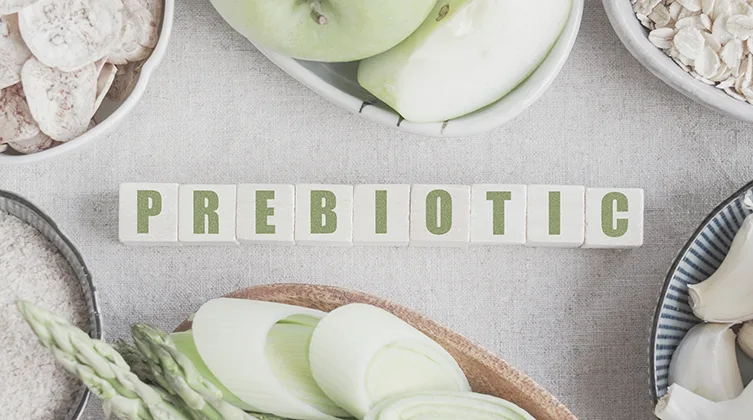Probiotics are increasing in popularity. Most people recognise that probiotics are beneficial in some way or another. And that they may even help stave off disease. But when it comes to actually selecting a probiotic to consume, it’s truly confusing (and expensive)!
>>> Read more about the role of friendly gut microbes here: click!
Firstly, what is a probiotic?
Probiotic is a generalised term for living microorganisms, mainly bacteria, which deliver positive health effects to the host (the host commonly assumed to be humans).
What about prebiotics?
Prebiotics is not a spelling mistake for the better known probiotics! However, they are closely related. Prebiotics are the food material that feed and provide energy for probiotics to survive and thrive. Prebiotics are to probiotics like food is to humans.
What to look for when purchasing a probiotic?
There are a number of things to consider when choosing a probiotic supplement with the intention for therapeutic effects.
Whilst not an exhaustive list, the most important considerations include:
- Relevance to the specific health condition and goal
- Number of microorganisms, usually expressed as colony forming units (CFU)
- Storage and transport conditions
- Stomach acid and bile resistibility
- Ability to colonise the lower gastrointestinal tract
Without the above considerations, the probiotic you choose to consume may have limited benefits. And may simply be a waste of your money.
Which specific strains should I choose?
The strains of probiotic microorganisms that you choose to consume should be relevant to your specific health condition and goal.
There are between 500 and 1000 different strains of healthful bacteria living in the human colon. Different strains (even within the same species) assist in maintaining different well-functioning processes in the healthy human body.
For example, one scientific study demonstrated that L. rhamnosus GR-1 (in conjunction with L. fermentum B-54) was effective in reducing urinary tract infections (UTIs). Whilst in another study L. rhamnosus in Gynophilus® was ineffective. Choosing the right strains is essential if you wish for the probiotic supplement to be helpful in addressing a specific health goal.
This is where choosing a probiotic is rather complicated and I highly recommend seeking guidance from a health professional with a specific interest in probiotics and gastrointestinal health (indeed, very few health professionals are well-versed in probiotics). A specialist health professional can assist you with interpreting the latest research and selecting an appropriate commercially available probiotic formulation.
How many?
Probiotics come in big numbers and with good reason. Our body is literally teaming with bacteria. For probiotics to have a therapeutic effect, they need to be able to overwhelm the existing pathogenic bacteria. When selecting a probiotic, more is better. But price often rises concomitantly with the number of bacteria.
Ability to survive and thrive in the gut
Remember probiotics are living creatures! For probiotics to be therapeutically effective they need to survive the entire journey to your colon. This includes manufacturing, storage, transport, and transit through the gastrointestinal tract.
Many probiotic supplements are refrigerated. This is because higher temperatures increase the metabolism of the microorganisms, which causes them to use up the limited food supply and energy and die off faster. If the supplement packaging states that they should be stored in a refrigerator, make sure they have been before purchasing. If shipping is required, consider the length of time for shipment and the weather conditions.
Some probiotic supplements claim to be “shelf-stable” at room temperature. Again, I recommend reading the packaging for the suggested storage conditions and assess whether these have been met prior to buying.
You should also check the expiry date. Choose the freshest probiotics, as even under ideal storage conditions, the number of probiotics will gradually decline over time.
When consuming probiotics, I recommend taking them together with food. The food will help buffer the acidity through the stomach, assisting more of the probiotics to arrive alive at the lower gastrointestinal tract.
Choose a reputable brand!
Probiotic supplements are poorly regulated. They are considered as food products and not a medicine or pharmaceutical. They are overseen by Food Standards Australia New Zealand (FSANZ) in Australia and the FDA in the US.
Poor regulation means some probiotic supplements may not even contain the strains or number of probiotics that they claim to contain. Indeed, when Jason Hawrelak (PhD) contacted several manufacturers for his research paper, Probiotics: choosing the right one for you, a number of companies refused to disclose any information.
Because of the dubious regulation and transparency with probiotic supplements, it is important to choose a reputable manufacturer. Many manufacturers submit their probiotic products for scientific validation. Choosing a probiotic supplement from a manufacturer that is willing to have their products scientifically evaluated and verified can help increase the confidence that you are getting what is stated.
Final remarks
When choosing a probiotic supplement, it is important to consider the variety of strains and how they relate to your specific health condition or goal. If you feel overwhelmed by all the microorganisms (which is totally understandable with their crazy nomenclature), seek guidance from a health professional with a special interest in gastrointestinal health who can help interpret the science.
Once you have identified the relevant strains of probiotics, identify a product from a reputable manufacturer. Choose the product with the highest number of microorganisms. More is better. And assess whether the recommended storage conditions have been met.
Consume the probiotics with a little food. The enteric coating of some probiotic supplements is not necessarily indicative of better survival through the perilous stomach environment into the lower gut.
Lastly, taking probiotics for a specific health condition should form only part of a wider, holistic action plan. Whilst probiotics are pretty exciting stuff, they are no miracle cure on their own.
If you have discovered a source of probiotics to be effective, please share your experiences in the comments below! There is a myriad of supplements available on the market and sometimes word-of-mouth is actually the best source of information.





